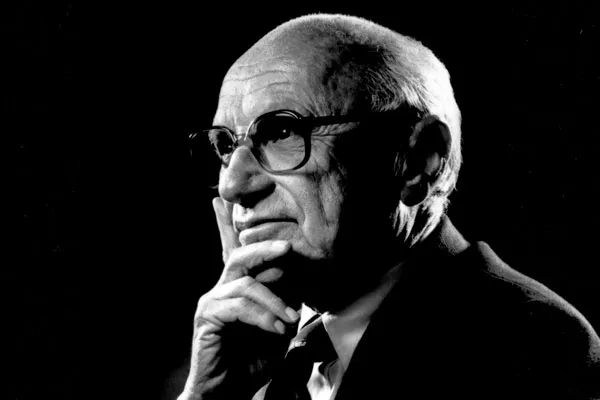Big Labor Academic Candidly Admits That Compulsory Unionism Antithetical To Free Market

In a recent interview with far-left writer Rick Paulas (linked below) Nelson Lichtenstein ridiculed Americans who consider themselves to be pro-union and pro-free market. Such people, said Lichtenstein derisively, “think that if the market worked the way it should, that’d be perfect†for unionizing workers.
Lichtenstein strongly asserts that: “[Compulsory] unions are not for the market. They’re against the market. That’s the purpose of a union.â€
Today’s Big Labor bosses are rarely so blunt about their ideological agenda, but we are unaware of any union spokesman who disagrees with Lichtenstein’s anti-free market assessment. Afterall, his assessment is indeed correct.
In a 1979 exchange with TV talk show host Phil Donahue, the late Nobel Prize-winning economist Milton Friedman resoundingly defended the free market and its capacity to raised the living standards of all kinds of people:
[T]he record of history is absolutely clear. . . . [T]here is no alternative way, so far discovered, of improving the lot of . . . ordinary people that can hold a candle to the productive activities that are unleashed by a free enterprise system.

Prominent Big Labor academic ally Nelson Lichtenstein recently lambasted Americans who consider themselves to be pro-union, but don’t want union bosses to “thwart the harmony of the free market.†“They think if the market worked the way it should, that’d be perfect,†he sneered. But union officials are “against the market. That’s the purpose of a union.†Image: Brandon Wu
Decades of scientific polls have shown that, in principle, Americans overwhelmingly agree with Friedman. For example, a 2014 Reason-Rupe telephone survey found that 72% of Americans have a “very favorable†or “mostly favorable†opinion of the free market system, compared to just 20% who have a mostly or very unfavorable view of free markets. According to the same poll, Americans hold an unfavorable view of a government-managed economy by a 70% to 27% margin.
Most Americans, including millions of workers who are forced to pay unions as a condition of employment, agree with the Friedman view that the operation of the free market has been hugely beneficial for people from all walks of life. However, union bosses prevent the free market from functioning efficiently.
According to Lichenstein, director of the Center for the Study of Work, Labor, and Democracy at the University of California, Santa Barbara, Big Labor sharply disagrees with the pro-free market consensus. Lichtenstein is speaking not as a critic of union bosses’ agenda, but rather as a prominent Big Labor champion who often defends union officials’ coercion in media forums.
Moreover, federal and state labor laws that empower Big Labor to force unwilling workers under union monopoly control and extract forced financial support antithetical to free-market employment and advance the union hierarchy’s unpopular and destructive economic agenda.

